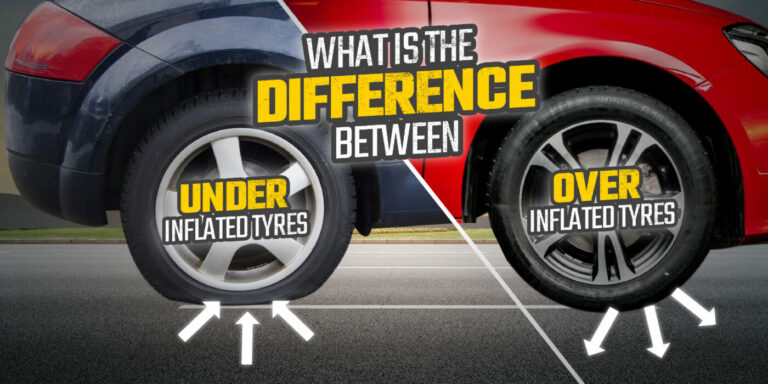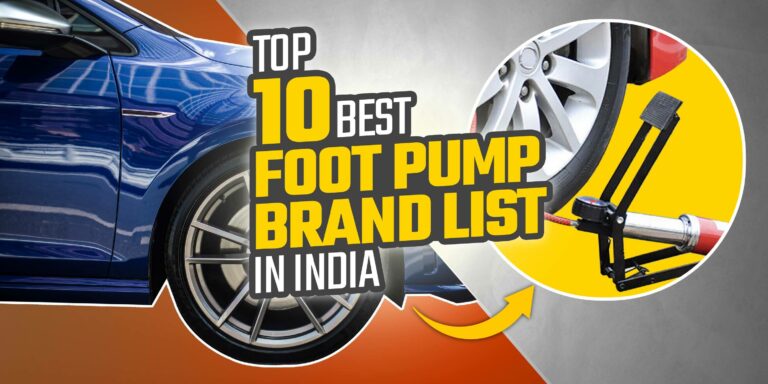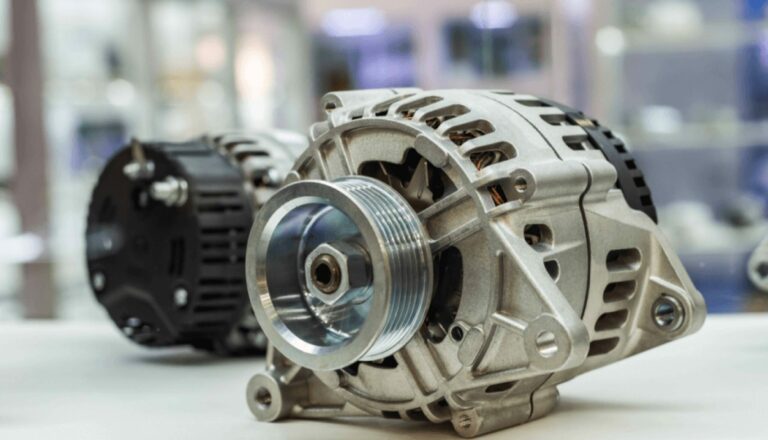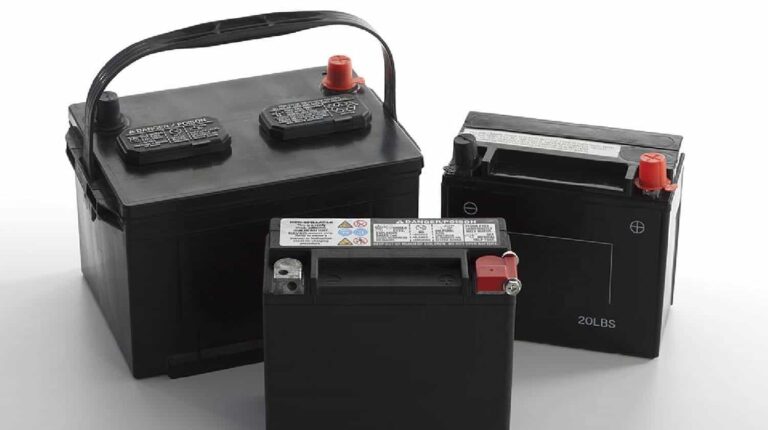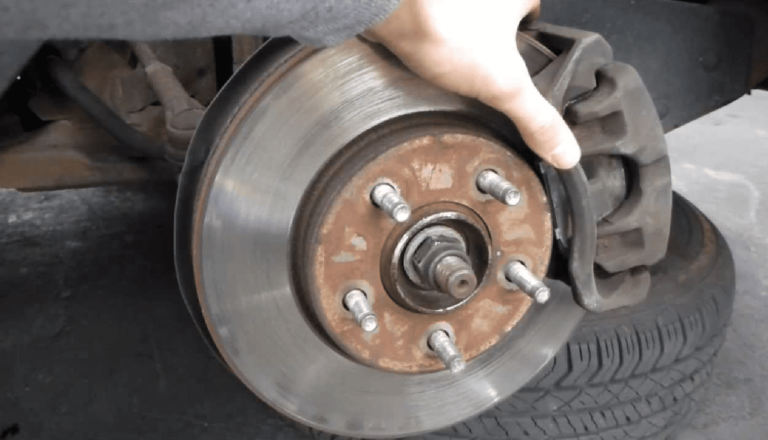
In this blog we will learn about wheel bearings. What are these bearings? Then we will answer some of the frequently asked questions which will clear out all the confusions. What are wheel bearings?
Bearings work on the simple concept of physics that things roll better than sliding. Friction encountered by an object is less when they are rolling.
Bearings consist of two surfaces- an inner circle surface and an outer one and metals balls in between these circles. These metal balls bear the weight and make the device spin smoothly.
Behind every wheel, on every vehicle there is a set of tiny wheel bearings that keeps the wheel smoothly rotating without any interruption.
A wheel bearing is located within the wheel hub, which connects the wheel and axle. Each wheel has its own set of bearing. So, in a car you’ll find 4 wheel bearings, while in a bike, you’ll find 2 of them.
Wheel bearings last anywhere from 75k to 100k miles. They should be replaced after that to avoid various issues like noise or steering vibration.
Types Of Bearings
Ball and roller bearings are the two of the most common types of wheel bearings that we encounter.
Roller bearings use rollers, which is a set of small cylinders placed within a tapered circular housing. This type of bearing is not sealed which is good for servicing but has the risk of getting locked up due to debris getting inside. Ball bearings, instead, use miniature balls with small contact points for the ease of rolling. Ball bearings are generally sealed, so, they are good in keeping contamination out but they can’t be serviced.
How do wheel bearings work?
Wheel bearings work on the concept of reducing friction. Any object when slides over another it produces a greater friction than when the object rolls over the other. The small balls roll over the two surfaces and make rolling motion. So, to move the vehicle, now lesser energy is required and can save fuel.
Replacement cost of wheel bearings
Wheel bearings aren’t very costly. Each bearing cost about 150rs for bikes. This will differ for different brands. For cars, this can go up to a few thousands of rupees. But replacement of a worn-out bearing is necessary for a smooth and enjoyable riding experience.
Frequently Asked Questions
Q1: When do wheel bearings have to be replaced?
Wheel bearings have an average lifespan of 85k to 100k miles or 136k to 160k in kms. It needs to be changed even before this running distance if you hear noises or faces issues related to it.
Q2: Why do wheel bearings need to be replaced?
Wheel bearing is a moving part and all moving parts are subject to wear and tear with time. So, as we continue driving our vehicles it will wear out by constantly moving.
Q3: Where to buy wheel bearings?
It will be available in your vehicle’s authorized service center and also with local workshops. Furthermore, you can find it in online sites.
Q4: How many wheel bearings does a car have?
As the name suggests, these bearings are meant for the wheels and so, there are 4 bearings in a car for 4 wheels. Additionally, a car has many different types of bearings like engine bearings etc.
Q5: Are wheel bearings covered under warranty?
No. Generally no parts which are subject to wear and tear are covered under warranty. But under warranty, brands will certainly provide the service charge for replacement of the bearings.
Q6: Which grease for wheel bearings?
There are different types of greases for wheel bearings like ion-based grease and moly ep grease. Ion-based grease has high water resistance but low resistance to high temperatures. EP greases have both good moisture and temperature tolerance. So, it is better to use EP greases. Some common grease brands in India are Bosch and Waxpol. Remember, wheel bearings need to be greased for proper functioning. If not greased it may growl while you accelerate.
Q7: What happens when wheel bearings are worn out?
There are many things that can happen if your bearing goes bad:
Noise- A humming, rumbling or growling noise that increases with acceleration or when the vehicle turns. A constant grinding noise may also be heard or clunking sounds when the vehicles run on uneven roads.
Vibrations- You may feel vibrations on the steering wheel or there may be looseness or excessive play in the steering.
ABS malfunctioning- ABS sensors are integrated on the wheel end bearings. So, worn out bearing may also cause ABS malfunctioning.
Q8: Where are Timken bearings made?
The Timken Company is a famous global manufacturer of bearings. They have plants in many countries.
In India, Timken manufactures bearings in their Jamshedpur and Bharuch plants.
Q9: Are wheel bearings and hub bearings same?
No, they are not the same. The major difference lies in the assembly. Wheel bearings can be dismantled for re-lubrication and fitted again. But hub bearings cannot be taken apart for lubrication or anything. They come packed as a complete unit and must be replaced if any problem arises.
Q10: Dodge journey wheel bearing
Dodge journey is a mid-size suv. The wheel bearings of a dodge journey are quite expensive. It may cost about rs 20k.
Q11: How often should wheel bearings be greased?
You should grease the wheel bearings of your car every 15-16 thousand kms. Or you can grease once in a season.
Q12: Are wheel bearings part of the suspension system?
Wheel bearings are responsible for keeping the wheels attached to the vehicle. It is an important component of the vehicle’s suspension and steering. The one-piece hub assembly, located between the drive axle and the brake disc or drums, incorporates the hub, wheel bearings, ABS sensors and mounting flange.
Q13: Where are Moog bearings made?
Moog is another renowned brand for bearings. Moong originally manufactures its products in Korea.
Q14: Can wheel bearings go bad from sitting?
Yes, it can happen if it is not properly cared for. Wheel bearings may develop rust if not cleaned and greased regularly. So, even if you are not using your vehicle, grease and clean the wheel bearings from time to time to keep it intact.
Q15: Can wheel bearings be repaired?
This has a tricky answer. Yes, it is true that wheel bearing is repairable as compared to hub bearing but it isn’t completely.
If the wheel bearing is making noise and just needs greasing then it can be done. But if it has worn out then it cannot be repaired.
Q16: Where to get wheel bearings replaced?
Wheel bearing replacement can be tiresome for unprofessional people, so it is best to get your bearing replaced by a service center. Also, a lot of different tools are needed to dissemble the wheel bearing which may not be present in our homes.
Q17: Will wheel bearing cause shaking?
Absolutely. A worn-out bearing may cause shaking. As discussed before, it has important role in suspension and steering of the vehicle. So, a damaged bearing can cause shaking and vibrations in the steering.
Q17: Why repack wheel bearings?
Repacking wheel bearings are a process of removing the wheels and dissembling the wheel bearings to grease it. It is necessary for proper functioning of the bearing. If not repacked, wheel bearings may make noises and not run smoothly.
Q18: When to repack wheel bearings?
At the time of every service, we can ask the technician to repack the wheel bearings. In this way, the bearings will be maintained well.
Q19: Can wheel bearings squeak?
Yes, wheel bearings can make squeaking noises if not greased or when it has worn-out. This sound implies than the balls cannot roll smoothly.
Q20: How wheel bearings are made?
Wheel bearings are made of steel as they have to undergo a lot of stress and temperature when in motion. They are made in manufacturing plants. There are two surfaces- an outer and an inner surface. Balls are added in between these two surfaces to give rolling motion.
Q21: Can wheel bearings lock up?
Yes, wheel bearings may lock up if debris gets inside the bearings. This may in turn lock up the wheels which can be very dangerous. For this reason, modern wheel bearings are sealed so that debris or any other particle cannot get inside the bearings.
So, these were all the things you need to know about wheel bearings. Hope this blog gave good knowledge to you about the subject and all your confusions got cleared.


